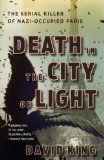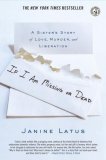Summary | Excerpt | Reviews | Beyond the book | Read-Alikes | Genres & Themes | Author Bio

Poems of Murder and Mayhem
by Harold Schechter (editor), Kurt Brown (editor)"...[W]e harbor collectively, / an intent / to harm. Impossible to acknowledge, much less speak," concludes poet Ravi Shankar in "Killers in Letters," an examination of the abyss that lies between fictional murderers and the all-too-real criminals who monopolize headlines and haunt our sleep. Using deceptively colloquial language and even humor, Shankar highlights our nearly universal fascination with violent death, a subject too often either sensationalized or pushed under the rug. Featuring an array of styles, perspectives, forms, and tones, Killer Verse peers into every dark corner of this disturbing yet compulsively alluring crime.
According to the Judeo-Christian tradition, Cain slew his brother Abel, thus causing "the first death on earth, a violent death / that shattered the natural course of things / even before it was established. Violation preceded order..." (Margherita Guidacci, "Cain and Abel (I)"). Around this dark theme, editors Harold Schecter and Kurt Brown gather the first selection of poems under the title "All in the Family". Far from conjuring the lovably loony Bunker family from the '70s sitcom of the same name, this section focuses instead on brothers killing each other ("Abel" by Gregory Djanikian), sons drowning mothers (the Hitchcockian "Your Darling Matricide" by Rigoberto González), and famed nineteenth-century murderess Lizzie Borden taking an ax to her father and stepmother ("Fall River Historical Museum" by Jan Heller Levi and "The Passion of Lizzie Borden" by Ruth Whitman).
The specter of filicide (the killing of one's child) also casts a chill over the volume, recurring throughout several sections, most powerfully in Cornelius Eady's "Birthing," a key poem from his cycle Brutal Imagination (see sidebar). Susan Smith captured national attention in 1994 when she reported her two young sons missing and claimed that an African-American man had kidnapped them. Further investigation revealed that Smith had drowned the children by pushing her car into a lake. "Birthing" describes the genesis of the bogeyman that Smith invents as a surrogate for her shame over being not only a murderer but also a bad mother. In utero, so to speak, the scapegoat can narrate his conception: "I have yet / To breathe. // I am in the back of her mind, / Not even a notion. // A scrap of cloth, the way / A man lopes down a street."
Other contemporary killers stalk these pages, with some of the most horrifying poems appearing under the witty rubric "Psycho Killer, Qu'est-ce que c'est?", an homage to the titular Talking Heads song. Kimiko Hahn contributes two plain-spoken evocations of the Midwestern serial murderers Ed Gein and Jeffrey Dahmer in "All Told" and "Road Kill," respectively. "No one thought anything amiss / in the child's collection of road kill..." reads the ominous opening stanza of the latter poem. Mary E. Moore crafts the haunting "You Know Who You Are" from notes written by Virginia Tech mass murderer Seung-Hui Cho and found in the aftermath of the 2007 massacre. And Patricia Smith's "Speculation" movingly captures the moment that her own childhood innocence ended when, in 1966, she watched TV news coverage of Richard Speck's murder of eight student nurses in their dormitory.
Even for those readers not drawn to the often-gruesome depictions on display here, Killer Verse, like all the Everyman collections, offers an excellent primer on the cornucopia of forms available to poets. The editors have carefully chosen something to appeal to everyone: anonymous murder ballads dating back centuries; the immaculately crafted first person monologues of Victorian poets Robert Browning and Thomas Hardy; Tony Barnstone's contemporary sonnets dedicated to pulp fiction themes; and Philip B. Williams's incendiary tale of a cross-dressing young man who guns down his parents. These are just a few of the pieces that transform the worst qualities that humanity possesses into powerful art. While none of these poems can erase the horrible fact that murder exists, they all testify to poetry's willingness to provoke discomfort in the service of deeper insight.
Additional Info
"Everyman, I will go with thee and be thy guide, in thy most need to go by thy side..."
 Killer Verse is just one book in the Everyman's Library, a collection of books founded in 1906 by Joseph Dent, a London bookbinder turned publisher, who sought to produce beautiful, affordable editions of the world's best literature. He wanted "to appeal to every kind of reader: the worker, the student, the cultured man, the child, the man and the woman... for a few shillings the reader may have a whole bookshelf of the immortals; for five pounds... a man may be intellectually rich for life."
Killer Verse is just one book in the Everyman's Library, a collection of books founded in 1906 by Joseph Dent, a London bookbinder turned publisher, who sought to produce beautiful, affordable editions of the world's best literature. He wanted "to appeal to every kind of reader: the worker, the student, the cultured man, the child, the man and the woman... for a few shillings the reader may have a whole bookshelf of the immortals; for five pounds... a man may be intellectually rich for life."
Now a part of Random House, Everyman's Library produces old-fashioned, colored cloth hardback books (complete with ribbon markers and sewn bindings) and are able to keep costs low by printing material that is largely in the public domain. And between the delightfully wide array of literary offerings - by 1956 they had printed over 1,000 titles - and the color-coded covers (scarlet = contemporary classics, mauve = ancient classics, sand = poetry, dark green = 18th century...), browsing their collection leaves you feeling a bit like a kid in a candy store.
![]() This review
first ran in the October 19, 2011
issue of BookBrowse Recommends.
This review
first ran in the October 19, 2011
issue of BookBrowse Recommends.

If you liked Killer Verse, try these:

by David King
Published 2012
Death in the City of Light is a brilliant evocation of Nazi-Occupied Paris and a harrowing exploration of murder, betrayal, and evil of staggering proportions.

by Janine Latus
Published 2008
In April 2002, Janine Latus's youngest sister, Amy, wrote a note and taped it to the inside of her desk drawer. Today Ron Ball and I are romantically involved, it read, but I fear I have placed myself at risk in a variety of ways. Based on his criminal past, writing this out just seems like the smart thing to do. If I am missing or dead this ...
What really knocks me out is a book that, when you're all done reading, you wish the author that wrote it was a ...
Click Here to find out who said this, as well as discovering other famous literary quotes!
Your guide toexceptional books
BookBrowse seeks out and recommends the best in contemporary fiction and nonfiction—books that not only engage and entertain but also deepen our understanding of ourselves and the world around us.